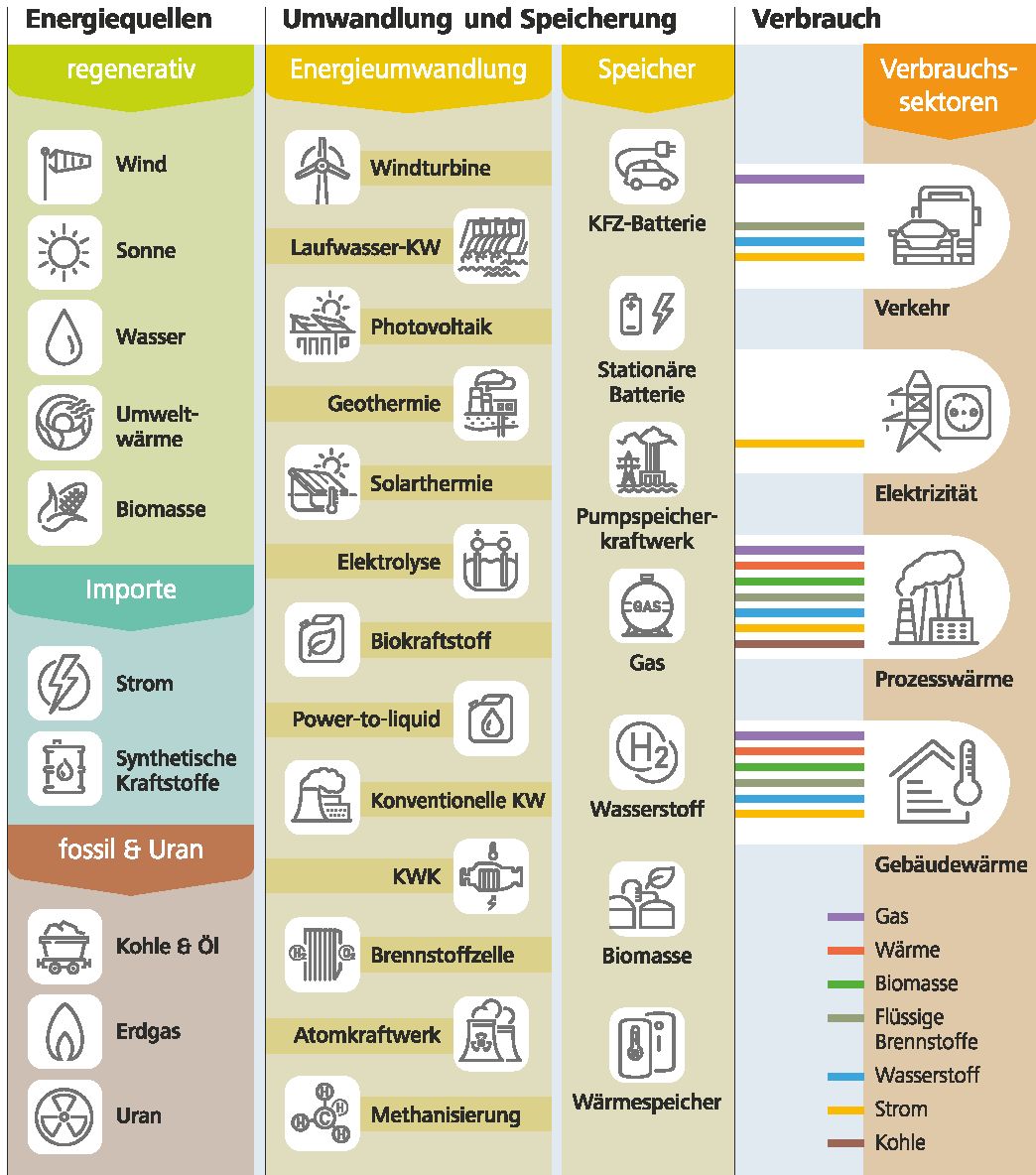| Duration: | 06/2020 - 05/2023 |
| Contracting Authority/ Sponsors: |
Bundesministerium für Bildung und Forschung (BMBF) |
| Project Partners: | adelphi| Brandenburgische Technische Universität Cottbus – Senftenberg (BTU) | Deutsche Energie-Agentur (dena) | Deutsches Institut für Wirtschaftsforschung (DIW) | Deutsches Zentrum für Luft- und Raumfahrt (DLR) | Ecologic Institute | Fraunhofer Cluster of Excellence Integrated Energy Systems (CINES) | Helmholtz-Zentrum Geesthacht | Hertie School | Hochschule für Wirtschaft und Umwelt Nürtingen-Geislingen | Institut der deutschen Wirtschaft Köln | Institut für Klimaschutz, Energie und Mobilität | Institute For Advanced Sustainability Studies (IASS) | Mercator Research Institute on Global Commons and Climate Change (MCC) | Öko-Institut | Potsdam-Institut für Klimafolgenforschung (PIK) | RWI – Leibniz-Institut für Wirtschaftsforschung | Stiftung 2° - Deutsche Unternehmer für Klimaschutz | Stiftung Umweltenergierecht | Technische Universität Darmstadt | Technische Universität München | Universität Hamburg | Universität Münster | Universität Potsdam | Universität Stuttgart – Institut für Energiewirtschaft und Rationelle Energieanwendung (IER) | ZEW - Leibniz-Zentrum für Europäische Wirtschaftsforschung |
| Website: | Kopernikus-Projekt »Ariadne« |
| Project Focus: |
Copernicus-Ariadne – Evidence-Based Assessment to Map Out the German Energy Transformation
Twenty six research institutions join forces in the Ariadne project to find ways to structure the development of the energy transition. Ariadne is one of four Copernicus projects funded by the German Federal Ministry of Education and Research (BMBF). During the project’s three-year duration, the researchers will investigate which policy instruments are suitable for achieving the climate goals of the Paris Climate Change Agreement. To better understand the effects of singular political measures and policy paths as well as to gain a perspective on the overall system, the project partners together with actors from politics, the energy transition and society will investigate meaningful strategies for the energy system transition and their public acceptance. The project continuously compiles its findings and results on a multimedia website.
Who is Ariadne? In Greek mythology, the legendary hero Theseus succeeded in navigating safely through the labyrinth of the Minotaur by the thread of Ariadne.
Under this namesake, the objective of the Ariadne project is to provide an overall picture which includes technologies, instruments and regulatory as well as social framework conditions. At the same time, detailed knowledge for the specific sectoral issues is to be accumulated so that the policy instruments, complementary to the CO2 price, fit to each sector. Both within each sector as well as across sectors, it is important to identify undesirable developments early on, e.g. lock-in effects that jeopardize the achievement of long-term climate protection goals.
The heart of the project is a Green Paper/White Paper process, which provides decision-makers with various policy-shaping options that comply with climate protection goals and are socially acceptable at the same time.
The Green Paper: What is politically possible?
An inventory of the status quo forms the basis of the work. In a green paper the possible options for managing the course of the energy system transition will be described.
The White Paper: What is socially accepted?
The results of the green paper will be used as the basis for a second round of consultations in the Ariadne project. This will take place in the form of forums and citizen dialogues involving politicians and actors involved in the energy system transition. In these dialogues the options laid down in the green paper will be discussed. The results of these dialogues will be published in a white paper which will be available in multimedia online.
In collaboration with its sister institutes in the Fraunhofer Cluster of Excellence CINES, Fraunhofer ISE will provide results from the Ariadne project on the analysis of the German energy transition. The work package to analyze the systemic effects of the energy transition is headed by Fraunhofer ISE, represented by Christoph Kost, and the Potsdam Institute for Climate Impact Research (PIK). The energy system model REMod, developed at Fraunhofer ISE, will be used for this analysis. The specific aim of the work package is (1) to investigate the effectiveness of those climate protection measures which have already been implemented in relation to the long-term climate goals, (2) to formulate different energy use strategies for achieving the long-term goals, and (3) to perform a detailed impact analysis for these different strategies, for example with regard to environmental effects, distribution or competitiveness. In this project at Fraunhofer ISE, the energy model REMod is used to analyze the overall system and sector coupling issues. The objective is to determine how to best combine policy measures and tools across all sectors for the energy system transition.
The work package "Sectoral Focus: Analysis of the Heat Transition” headed by Sebasitan Herkel is also being carried out at Fraunhofer ISE. This package evaluates the challenges facing the heating transition and analyzes different solution options. The systemic impact of the identified instruments is analyzed, presented and then assessed. The research group at Fraunhofer ISE looks at how the potential in the building sector and housing market can be better implemented with respect to the different technologies and the involved actors. To achieve this, a close dialogue with the different stakeholders such as tenants and owners is planned.
The overall management of the Ariadne project is in the hands of Prof. Dr. Ottmar Edenhofer, Director of the Potsdam Institute for Climate Impact Research (PIK) and the Mercator Research Center on Global Commons and Climate Change (MCC).
